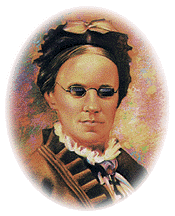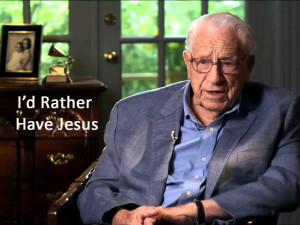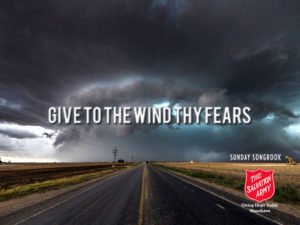You may be inclined not to read about this commonly-used hymn and its well-known author, but may be surprised to learn of the song’s early years of disuse. Read on!
You may be inclined not to read about this commonly-used hymn and its well-known author, but may be surprised to learn of the song’s early years of disuse. Read on! Share on XTo God be the glory, great things He hath done;
So loved He the world that He gave us His Son,
Who yielded His life an atonement for sin,
And opened the life-gate that all may go in.
Praise the Lord! Praise the Lord!
Let the earth hear His voice!
Praise the Lord! Praise the Lord!
Let the people rejoice!
Oh, come to the Father through Jesus, the Son,
And give Him the glory – great things He hath done!
O perfect redemption, the purchase of blood!
To every believer, the promise of God;
The vilest offender who truly believes,
That moment from Jesus a pardon receives.
Great things He hath taught us, great things He hath done,
And great our rejoicing through Jesus the Son;
But purer and higher and greater will be
Our wonder, our rapture, when Jesus we see.
 Published in 1875, a little volume of hymns called Brightest and Best contained this hymn by Fanny Crosby, but it was then called Praise for Redemption . The book held other treasured songs of the Christian church (not all by Fanny Crosby): Christ Arose, All the Way My Saviour Leads Me, Draw Me Nearer, and Rescue the Perishing to name a few. Praise for Redemption did not become popular at the time, and was not included in many other hymnals, but lay hidden for eighty years!
Published in 1875, a little volume of hymns called Brightest and Best contained this hymn by Fanny Crosby, but it was then called Praise for Redemption . The book held other treasured songs of the Christian church (not all by Fanny Crosby): Christ Arose, All the Way My Saviour Leads Me, Draw Me Nearer, and Rescue the Perishing to name a few. Praise for Redemption did not become popular at the time, and was not included in many other hymnals, but lay hidden for eighty years!
In 1954, Billy Graham was planning a crusade in London, England, at Harringay Arena. Cliff Barrows, the team’s music director, was compiling hymns for a song book to be used there. A prolific British preacher, Rev. Frank Colquhoun, gave Barrows a copy of Praise for Redemption , and Barrows decided to use it, although he had been unfamiliar with it. The British press was critical of Billy Graham at this time, stating that he’d leave England “with his tail between his legs”. A Member of Parliament accused Graham of interfering with British politics under the guise of religion! Some of Dr. Graham’s advisors suggested he postpone the crusade. After much prayer, Billy Graham decided to carry on, and the Harringay Arena was crowded for three months, sparking a sense of revival across Britain! To God Be the Glory was an appropriate theme, and Fanny Crosby’s hymn was sung almost every night of the crusade. Thus began the great popularity with which we now associate this song.
WORDS: FANNY CROSBY MUSIC: WILLIAM H. DOANE
S.A. SONG BOOK, 1987 EDITION, #22 SECTION: GOD THE FATHER – PERSON AND PRAISE
REFERENCE: ROBERT J. MORGAN, THEN SINGS MY SOUL, BOOK 2







